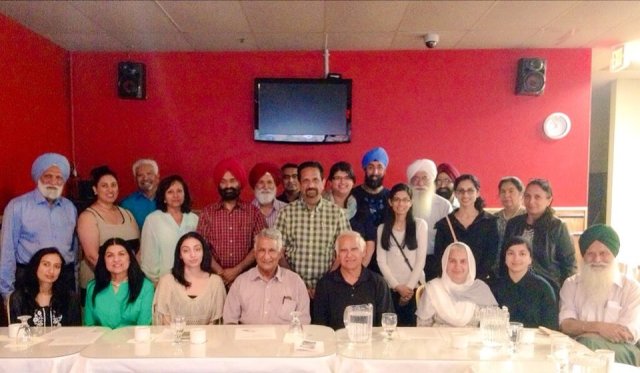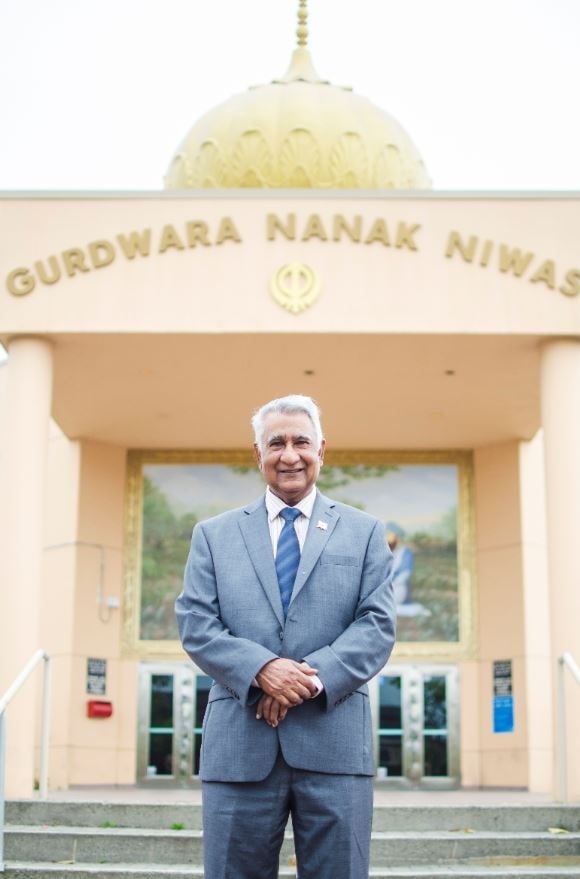DESIBUZZCanada
Events Listings
Dummy Post

International Day Of Yoga To Be Virtually Celebrated Saturday At 4pm

CANCELLED: Coronavirus Fears Kills Surrey’s Vaisakhi Day Parade

ADVERTISE WITH US: DESIBUZZCanada Is The Most Read South Asian Publication Online

SURREY LIBRARIES: Get Technology Help At Surrey Libraries

WALLY OPPAL: Surrey Police Transition Update On Feb. 26

GONE ARE THE DAYS - Feature Documentary Trailer

Technology Help At Surrey Libraries

Birding Walks

Plea Poetry/short Story : Youth Contest

International Folk Dancing Drop-in Sessions
LIFE IN METRO VANCOUVER: Moving From Donald, BC To The Big City For My Education
- November 3, 2020

By Balwant Sanghera – THIRD IN A SERIES ON MY LIFE
In order to get ready for my education at Simon Fraser University on Burnaby Mountain in September, 1966, I said goodbye to my friends in Donald and moved to Vancouver with my brother and his family. Life in Metro Vancouver for the South Asian community in the 1960s was simple, yet challenging. At that time there was not even one store totally designed to serve the Indo-Canadian community. There was an Italian store (Famous Foods) on Hastings and Clarke that carried some of the Indo-Canadian items like flour and lentils s etc. Also, there was only one Gurdwara (at 1866 West Second Avenue, near Burrard Street) run by Khalsa Diwan Society, Vancouver. Our community’s population at that time was also fairly small. I would accompany my brother to the Gurdwara every Sunday. There, everybody knew everybody. It was a very close=knit community. Most of the members of our community were working in saw mills in South Vancouver, False Creek and elsewhere in Metro Vancouver. The elections at the Gurdwara were mainly by acclamation.
Things were fairly quiet and steady in the South Asian community till early 1970s when there was a huge influx of visitors from Punjab. It all started with EXPO 1967 in Montreal. Canada had invited the world to visit EXPO-The World Fair. It was a huge success and put Canada on the map. Lester (Mike) Pearson was the Prime Minister of Canada at that time. He was a very kind and open minded person with international outlook who had won the Nobel Peace Prize earlier in his political career. He asked Canadians to invite their friends and relatives to visit EXPO. It was a very successful fair that showcased Canada to the world. The visitors liked what they saw here. Some of the international visitors approached Mr. Pearson and urged him to let them apply for a permanent resident status. He agreed. This started the process of allowing visitors to Canada to apply for permanent resident status. Pierre Elliott Trudeau succeeded Mike Pearson as leader of the Liberal Party of Canada and as Prime Minister in April, 1968. Trudeau continued this policy. As the news filtered through to Punjab, there was a huge influx of mainly well- educated, energetic young men in their late twenties and thirties coming to Canada as visitors in early 1970s and then getting the permanent resident status. This was a huge milestone and game changer for our community in Canada.

Change is always uncomfortable for some people. Same was the case in our community when the visitors from Punjab started arriving in Canada in large numbers during the early 1970s. They faced both positive and negative reactions from the people who had been here before them. It was close to the reaction and challenges that the international students from India in general and Punjab in particular have been facing here for the last couple of years. Nevertheless, through their hard work and perseverance most of those visitors have succeeded and made the community proud of them. Once these visitors settled, they sponsored their families and relatives. This gave our community a big boost as our numbers began to grow steadily. This process continues to date. Consequently, our community has now become one of the largest, visible and most powerful communities in Canada. However, we should not forget that like other communities, our community had also to face a lot of challenges and struggles in order to reach this point.
When our pioneers arrived in Canada in the early 1900s, they had the right to vote as British subjects. In addition to facing racism, discrimination and other hardships, their right to vote was taken away in 1907. It took hard work and intense lobbying by our pioneers to get this right back in 1947. Similarly, our pioneers could not buy property in certain areas and could not pursue certain professions. Attempts by the governments at that time were made even to relocate our community to British Honduras. Luckily, some of our community leaders at that time declined. . Then we had the tragedy of Komagatamaru in 1914. To its credit, Khalsa Diwan Society, Vancouver, under its very capable leadership stood like a rock defending our community’s interests and right place in this country. All of us, especially our younger generations need to remember our history, appreciate the same and learn from it.
Balwant Sanghera is a retired School Psychologist and Community Activist.












